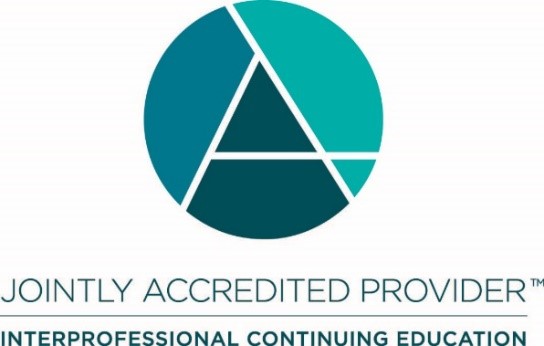Breast Cancer in Young Adults: Treatment Considerations and Supportive Care Options
There is currently a lack of adequate knowledge in the management of adolescent and young adult (AYA) individuals with cancer. Breast cancer in the AYA population is characterized by aggressive tumor biology and pathology, poorer clinical outcomes, and high rates of metastasis and local recurrence. Additionally, given the issues unique to this population, including education and career development, sexual function, and the prevention of sexually transmitted diseases, fertility preservation, family planning, pregnancy, and tobacco, alcohol, and substance abuse, AYA individuals diagnosed with cancer must be managed by a trained multidisciplinary team of providers. Education regarding treatment and supportive care issues is required to bridge the gap in AYA cancer care and improve outcomes in this population.
Target Audience
This educational program is designed to meet the educational needs of physicians, nurse practitioners, nurses, physician assistants, pharmacists, and other health care professionals who manage patients with breast cancer.
Learning Objectives
Following this activity, participants should be able to:
- Review the breast cancer risk factors and tumor characteristics unique to the adolescent and young adult (AYA) population.
- Compare and contrast the various treatment modalities for the management of breast cancer in young adults.
- Recognize the supportive care issues unique to the AYA population and manage patients accordingly.
Ann H. Partridge, MD, MPH
Dana-Farber Cancer Institute
NCCN Medical Education Disclosure Policy
It is the policy of NCCN that every 12 months, all faculty, moderators, activity planners and all internal planning staff participating in NCCN continuing education activities are expected to disclose any financial relationships with a commercial interest as defined by the Accreditation Council for Continuing Medical Education (ACCME) Standards for Commercial Support. In addition, all faculty presentations have been reviewed for adherence to the ACCME’s Standards for Commercial Support (the provider develops activities/educational interventions independent of commercial interests [SCS 1, 2 and 6] by experts on the topics).
Per the ACCME Standards for Commercial Support, individuals who do not disclose relevant financial relationships will be disqualified from involvement in the CE activity as a content developer, planner, or presenter. A complete list of individuals’ relationships with external entities is available upon request.
Definitions
NCCN continuing education considers financial relationships to create a “conflict of interest” when an individual has both a financial relationship with a commercial interest and the opportunity to affect CE content about the products or services of a commercial interest with which he/she and/or a spouse or partner has a financial relationship.
NCCN continuing education considers “relevant financial relationships” as financial relationships in any amount occurring within the past 12 months that create a conflict of interest. NCCN does not set a minimal dollar amount for relationships to be significant. Inherent in any amount is the incentive to maintain or increase the value of the relationship.
Faculty Disclaimers
All faculty for this continuing education activity are competent in the subject matter and qualified by experience, training, and/or preparation for the tasks and methods of delivery.
Faculty presentations may include discussion of off-label use. Faculty will disclose that the use in question is not currently approved by the FDA per the product labeling.
Faculty Disclosures
The faculty listed below discloses no relevant financial relationships:
Ann H. Partridge, MD, MPH
NCCN Staff Disclosures
The NCCN Activity Planning staff listed below discloses no relevant financial relationships:
Mike Abrams; Melissa Esplen; Mark A. Geisler; Kristina M. Gregory, RN, MSN, OCN; Kristin Kline Hasson; Rose Joyce; Karen Kanefield; Lisa Perfidio, MS; Shannon Ryan, CMP; Kathy Ann Smith, CHCP; Sarah Weinstein
The NCCN Clinical staff listed below discloses no relevant financial relationships:
Giby V. George, MD; Dorothy A. Shead, MS

In support of improving patient care, National Comprehensive Cancer Network (NCCN) is jointly accredited by the Accreditation Council for Continuing Medical Education (ACCME), the Accreditation Council for Pharmacy Education (ACPE), and the American Nurses Credentialing Center (ANCC), to provide continuing education for the healthcare team.
Physicians
NCCN designates this enduring activity for a maximum of 0.5 AMA PRA Category 1 Credit™. Physicians should claim only the credit commensurate with the extent of their participation in the activity.
Nurses
NCCN designates this educational activity for a maximum of 0.5 contact hour.
Pharmacists
NCCN designates this knowledge-based continuing education activity for 0.5 contact hour (0.05 CEUs) of continuing education credit. UAN: JA4008196-0000-21-030-H01-P
Physician Assistants
NCCN has been authorized by the American Academy of PAs (AAPA) to award AAPA Category 1 CME credit for activities planned in accordance with AAPA CME Criteria. This activity is designated for 0.5 AAPA Category 1 CME credit. Approval is valid until March 15, 2022. PAs should only claim credit commensurate with the extent of their participation.
Available Credit
- 0.50 AAPA Category 1 CME credit
- 0.50 ACPE contact hours
- 0.50 AMA PRA Category 1 Credit™
- 0.50 ANCC contact hours
- 0.50 Participation
Required Hardware/software
To complete this activity, users will need:
- A device with an Internet connection
- An HTML5 capable browser for video or audio playback
- One of the two latest versions of Google Chrome, Mozilla Firefox, or Safari
- Internet Explorer is no longer supported
- Adobe Reader or other PDF reader software for certificate viewing/printing

 Facebook
Facebook X
X LinkedIn
LinkedIn Forward
Forward